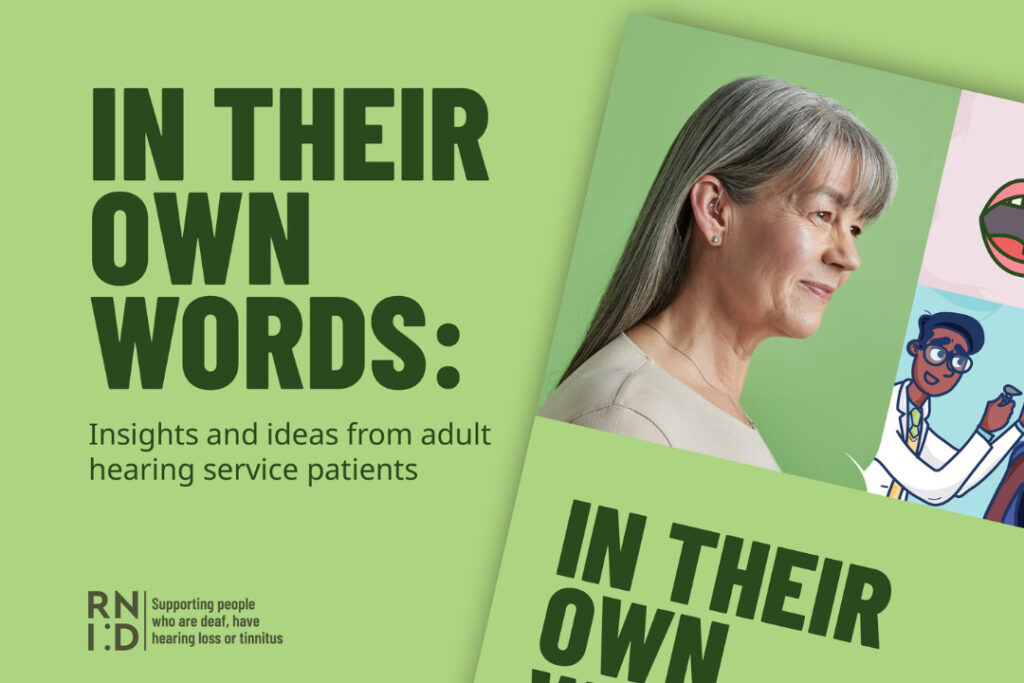
12 million adults in the UK are deaf, have hearing loss or tinnitus. This is 1 in 5 of us. By 2035, we estimate there’ll be around 14.2 million adults with hearing loss across the UK.
Even so, the experiences of people with hearing loss suggests the need for urgent improvement within current audiology services and investment to meet future demand. Our new In Their Own Words report explores more.
Audiology services play a crucial role in providing support and treatments to improve people’s hearing health. In recent years, audiology services have had reduced capacity due to staff shortages and inadequate funding, which has been exacerbated by the impacts of the COVID-19 pandemic.
Given the growing number of people with hearing loss, and the high level of unmet need with an estimated 5 million people that could benefit from hearing aids but do not have them, urgent action is needed to address both the current and future demand for adult hearing services.
Our ambition is to improve hearing outcomes for people experiencing hearing loss. We want as many people as possible to have access to high quality hearing loss assessments, treatments, and support.
About the report
To help shape the conversation around adult hearing services, we surveyed 1,204 people across the UK to understand their experiences so that improvements can be built on user needs.
Our new In Their Own Words report summarises the latest insights on people’s experiences and their ideas for service improvement, including:
- New service models – such as remote online support options and flexible drop-in clinics
- Better service accessibility – by using accessible communication and waiting rooms, improving access to ear wax removal, and local community support
- Encouraging new technology and patient empowerment – such as people trying hearing devices in a more natural environment, the ability of hearing devices to automatically tune themselves to your needs, and greater control or involvement in hearing device settings.
Your contribution
Thank you to all the people who shared your ideas and experiences. You have helped to highlight the key challenges and potential solutions for healthcare providers and decision-makers to consider. We will use these insights to guide our work in collaborating with others to rethink the future of audiology.
If you would like to inform our future work by participating in research, join our research panel.
